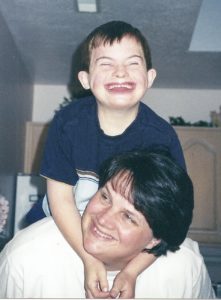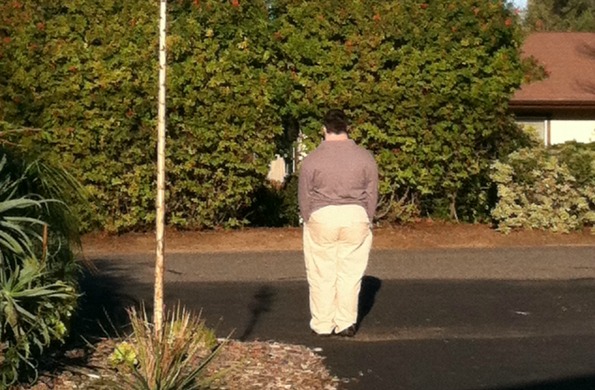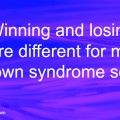When my children were little we had a goal to have regular outings with just the older two. To let the focus be on them, we would leave our Down syndrome son with a sitter. On one of the earliest of these they spent the whole time seemingly at each other’s throats. Their arguing and bickering sapped my enthusiasm for organizing such events. Nevertheless, we still tried to make an attempt once in a while.

Family outing without Joey.
For me the outings were a financial and an emotional strain.
Finances sometimes have to be allowed to be strained for something important. We wanted to let our older children know what it was like to move about the world freely. By that I mean: to not have to deal with the constant fits of stubbornness which ordinarily slowed everything down. These same refusals to act typically drew attention to our family as well, or else separated us altogether as kids and one parent would move on while the other stayed with Joe to restore calm and then catch up when possible. It was a priority for us that our other children know the feeling of passing inconspicuously through time and space at one’s own chosen pace.
The emotional strain for me in these excursions came in leaving Joey behind. It felt kind of mean to make all these big plans and then walk out the door on him. More than once we orchestrated it so that we didn’t all leave the house at the same time. My sister helped relieve me of that stress when I shared with her: “It’s so hard to plan the funnest thing and then leave him home.” And she answered: “Maybe to him it’s not the funnest thing.” Every time that emotional pinch came on an outing it helped tremendously to remember that we were doing things he likely wouldn’t enjoy.
Another angle on it –

Sis and Steve doing something Joey would not enjoy.
Last month in this blog I recommended the book “Born on a Blue Day” that explains the emotions of Daniel Tammet, an autistic man. He describes himself as a child when adults tried to get him to join in with a group of children. The adults assumed that he was feeling left out, but he wasn’t at all. He saw what was going on with the others but he actually preferred to be alone. He understood, knew he was not part of it, and liked it that way. This is a concept that wouldn’t have occurred to me. Like the adults around young Daniel, I would have expected that anyone would feel sad at not being part of the group.
It’s not possible to know which kinds of feelings are had by my Down syndrome son. He separates himself often. Does he leave because he does not know how to interact? Or does he simply prefer to not be in the buzz?
One thing is very certain – Joey likes to be at home. Are there insecurities at being in a place unfamiliar? Or does he merely best like his own little castle the way he has it organized?
Maybe Joe doesn’t mind doing something different then we do . . .

Joey is happy.
as long as he gets to stay at his home. I don’t know. These days he’s a good sport and just accepts what we ask him to do. Once though, when we came home and were looking with him at pictures from our outing, he pointed out mommy, and daddy, then Steve, and one of the 4 of us. And then pointing to it he said slowly: “There’s . . . not Joey.”
He knew. Was he hurt? I don’t know. But it did help knowing he wouldn’t have enjoyed what we were doing.
Though my Down syndrome son and I spend a lot of time together, his emotions and feelings are independent from mine. And though it’s clear when he likes something, and very clear when he doesn’t, there is no way for me to know what sort of range of emotions he feels. I guess that’s why I’ve just always tried to make him happy – because that’s something I can read. A mother doesn’t want to make her child sad if she can help it. That’s why it made me sad to leave him behind.

To read more of Jane’s articles, click the picture.
I appreciate Daniel Tammet and my sister Julia who taught me that maybe my son is not unhappy just because I think that I would be if I were in his place. The well of human emotions is deep and mysterious. We all just handle our own the best we can. I can never truly know what his life is like or “where he is coming from”. That’s why I forgive him when he says things like “Silly Mommy again!” or “Mommy, you ‘barrassing me!”
No matter where we’ve been or what’s gone on in the days or hours before, I can always find a way to coax a smile out of his face. I’ve never failed to be able to see there that I can still make him happy. Maybe that means that no matter what happens he forgives me too.
About Jane Thurston
Twitter •






